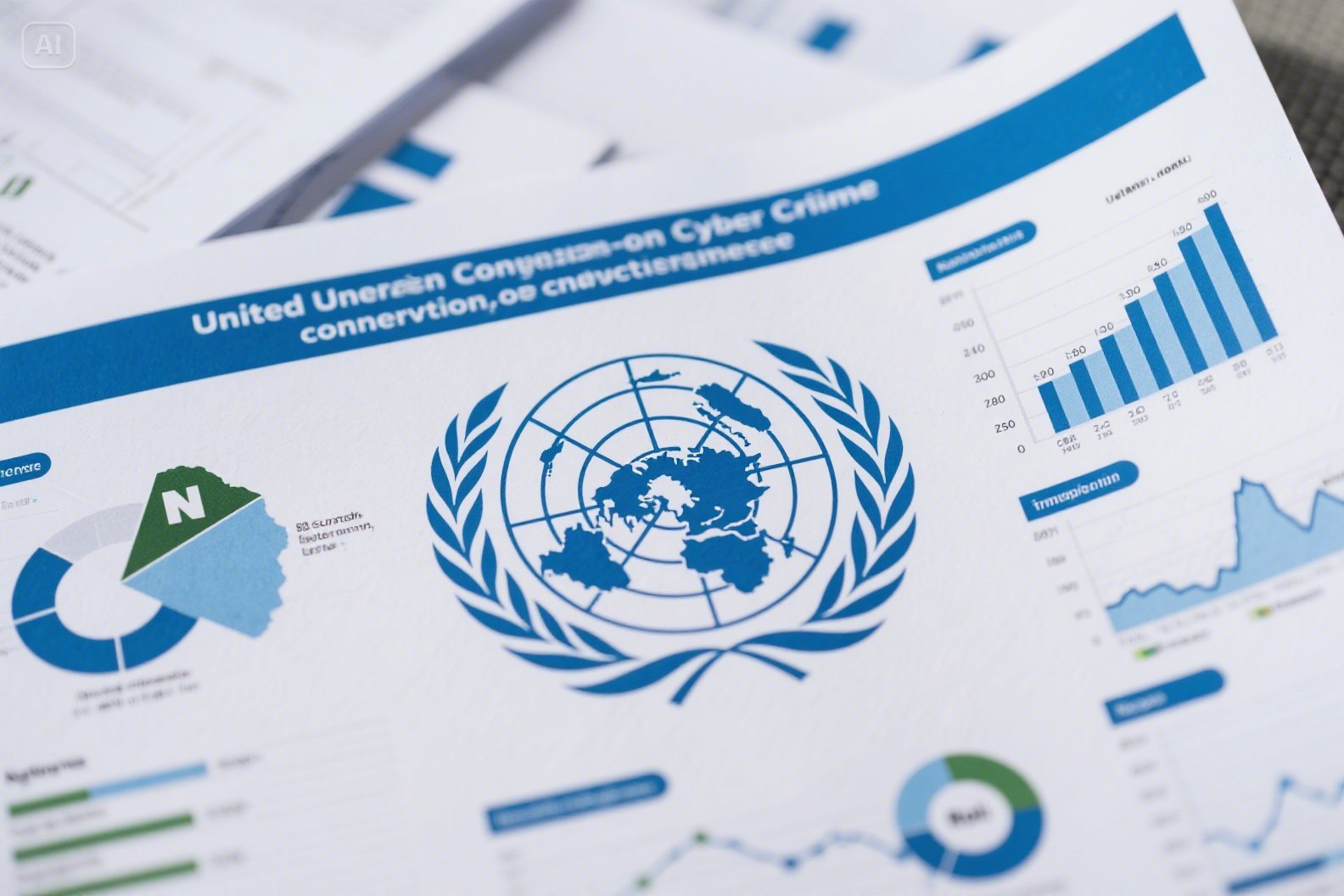
An Overview of the United Nations Convention on Cybercrime: Nigeria in Perspective
On the 24th day of December 2024, the United Nations General Assembly adopted the Convention on Cybercrime. This Convention is the first comprehensive international treaty that aims to prevent and prohibit information and internet-related crimes. The Convention is also known as the Budapest Convention or the Budapest Convention on Cybercrime. The three primary objectives of the Convention are:
- To promote effective measures to prevent and tackle cybercrime,
- Strengthen international cooperation in the fight against cyber related crimes, and
- Support technical assistance and capacity-building to prevent and combat cybercrime.
The adoption of this Convention brings to an end a five-year negotiation process making it the first global anti-crime treaty adopted in over twenty (20) years.
The scope of the Convention applies to the prevention, investigation and prosecution of criminal offences established by the Convention. It also contains provisions for the freezing, seizure, confiscation and return of proceeds of such offences. Furthermore, the Convention provides for the collecting, obtaining, preserving and sharing of evidence in electronic form for the purpose of criminal investigations or proceedings.
Article 4 of the UNCOC recognizes criminal offences established by other applicable UN Conventions and encourages state parties who are parties to such Conventions to consider incorporating those criminal offences in their domestic laws. The implication of the provision of this article is that state parties who ratify the Convention are not restricted or limited to the criminal offences that have been provided in the latest Convention. This new Convention did not repeal previous related Conventions. Hence by virtue of this provision, state parties may harmonize their domestic laws by incorporating offences from both this convention and other relevant international treaties.
Activities that have been criminalized by the Convention include illegal access, illegal interception, interference with electronic data, interference with an information and communications technology system, misuse of devices, information and communication technology system-related forgery, information and communication technology system-related theft or fraud, offences related to online child sexual abuse or child sexual exploitation material, solicitation or grooming for the purpose of committing a sexual offence against a child, non-consensual dissemination of intimate images and laundering of proceeds of crime.
Nigeria became a signatory to the Budapest Convention on the 6th day of July, 2022 and has since then collaborated with other state parties to the Convention to address the global threat of cybercrime. It is pertinent to note that this new Convention is of a wide scope which cuts across some Nigerian legislations some of which are: The Cyber Crime (Prohibition, Prevention, etc.) (Amendment) Act, 2024, Child’s Right Act 2003, Proceeds of Crime (Recovery and Management) Act 2022, Money Laundering (Prevention and Prohibition) Act 2022 among others. However, the Convention also criminalizes certain conduct not yet captured by Nigerian cybercrime legislation. For instance, The Cyber Crime (Prohibition, Prevention, etc.) (Amendment) Act, 2024 does not make provision for the non-consensual dissemination of intimate images. This development entails that Nigeria, as a signatory to the Convention, has the responsibility to ensure that this provision reflects in her local laws to bring the laws to conform with international standards.
In conclusion, this article recommends the urgent need for Nigeria to amend The Cyber Crime (Prohibition, Prevention, etc.) (Amendment) Act, 2024, to reflect the expanded scope of offences under the Badupest Convention. In order to achieve this, Nigeria should amend the Act by including the following provisions:
- Prohibiting the act of non-consensual dissemination of intimate images.
- That takes into consideration the protection of witnesses.
- Establish a record for entering the criminal history of individuals who have been prosecuted and convicted for cybercrime in Nigeria or other jurisdictions.
- Protection of personal information of individuals.
The amendment of this Act is necessary to ensure that Nigeria’s domestic laws are consistent and in line with the international treaty.
